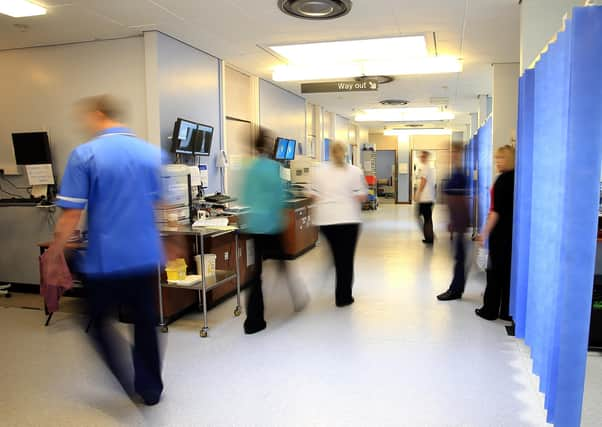Global lessons on health can be close to home in Scotland - Emily Broadis


In this way, the proud and famous history of Scottish global health volunteering may ironically have created a barrier for many NHS Scotland staff to be able to recognise something key: the vast opportunities they have as individuals to indirectly impact on global health each day here in Scotland.
At its core, the concept of global citizenship is the recognition that our local actions have global impacts, and that our own position in the world and the power that we may (or may not) have is influenced by the history that brought us to this point.
Advertisement
Hide AdAdvertisement
Hide AdWhat makes global citizenship within NHS Scotland particularly exciting, is that by empowering each individual to recognise their own potential, we unlock the possibility for an organisation that employs over 10 per cent of Scotland’s workforce, to make a huge positive impact on global health.
I believe there are three key principles on which to build global citizenship within NHS Scotland: the understanding that inequity leads to health inequality; poverty causes poor health; and climate change is a public health emergency.
A major good news story is that at an organisational level, NHS Scotland is supported to address these issues. Scotland was one of the first countries to sign up to the Sustainable Development Goals (SDGs) in 2015: a set of 17 global goals that aim to achieve prosperity for all and care for our planet.
The redesign of Scotland’s National Performance Framework in 2018, with its alignment to the SDGs, calls upon policy and service planners in public, private and voluntary organisations to commit to global accountability whilst simultaneously striving to improve the quality of life for the people of Scotland. These two frameworks not only recognise the social determinants of health, but also give permission to the NHS Scotland workforce to foster global citizenship.
Sustainability Action, the Scottish Managed Sustainable Health network (SMaSH), and Our Natural Health Service are encouraging all of us to recognise that changes in our work environment will drive NHS Scotland towards action on climate change and environmental sustainability.
The Active Global Citizenship project, initiated by NHS Scotland Global Citizenship programme and a collaboration between EU-funded network Bridge 47, Edinburgh-based charity Scotdec, and the Scottish Government Global Health Co-ordination unit, is producing a series of educational resources which use the SDGs as a tangible catalyst for staff to explore how their personal values align to NHS Scotland values, with reflection points and examples of good news stories already happening within the organisation.
Working in Malawi not only brought home to me the stark realisation of the link between poverty and poor health – it taught me to recognise the effects of poverty in my own patient population in Scotland when I returned.
My patient interactions as a paediatric surgeon became more than simply treating a head laceration in a toddler who had fallen from a pushchair.
Advertisement
Hide AdAdvertisement
Hide AdIt meant exploring the reason behind the injury, and looking at the social support networks available to this individual.
Whilst operating in a chronically poor resource setting gave me a new-found love for the value of NHS Scotland, it also delivered an urgency to take responsibility for the amount of waste we produce and a drive to explore sustainable and fair procurement policies.
Global citizenship not only awakens us to how our local actions impact globally, but by its very nature becomes a virtuous learning cycle, providing a surprising discomfort that shifts our accepted thinking through heightening our awareness of the health and social inequalities here in Scotland.
For many staff of NHS Scotland, the Covid-19 pandemic has highlighted the fact that we are living in a global community, and as we re-build our society here, a deep understanding of what global citizenship means, is vital.
Global citizenship within NHS Scotland is far broader than direct global health volunteering. It is a daily reminder to consider our choices and actions within the workplace, to support and encourage our colleagues, and to influence our local work and environmental policies for the good of all people, whilst protecting the planet. Put simply, it is an investment in NHS Scotland using an international currency of compassion.
Dr Emily Broadis is a specialty registrar in public health at NHS Ayrshire and Arran
Comments
Want to join the conversation? Please or to comment on this article.